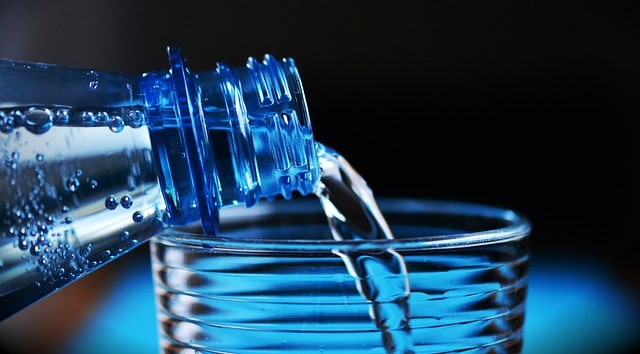
I was first exposed to desalination at around 8 years old, drinking water from a tap in the park when someone yelled “You know that is old sewerage water right?” I was horrified! Turns out it wasn’t sewerage water, it was desalinated and since going on to work in the water industry I have continually noticed confusion in the general population around drinking desalinated water. This confusion spurred my interest to write a quick, simple guide on desalinated water consumption and the main points to consider.
You can drink desalinated water. As a pure product desalinated water may not be the perfect source of hydration, however, there is nothing inherently bad about the water just because it has undergone desalination.
Hydration
You may have heard that desalinated water provides poor hydration because all the minerals have been stripped from the water when it underwent desalinization, in a practical sense this is not true. Minerals are absorbed from food and drink, so if you are consuming a balanced diet and drinking desalinated water the effect on mineral absorption will be negligible (World Health Organization 20).
“In general, drinking water has not been relied upon as a contributor of significant trace nutrients to daily intake, but rather as a serendipitous supplement whenever it occurs. The geographic and geologic distribution of the nutrients in drinking water will be varied and inconsistent so an appropriate diet should be the principal source.”
(World Health Organization 20)
As the previous quote from the World Health Organization states; most minerals and trace nutrients come from your diet, so the nutrient levels of drinking water generally will provide a negligible effect on the body. On the off chance that you will go an extended time without food such as long-distance running or hiking, Soluble electrolytes can be added to water for optimal performance and to ensure your body’s salt levels don’t drop to dangerous levels (Rollo 339).
Generally speaking, however, most industrial-scale desalination plants will actually add in trace minerals after the salt-removal process, so the very idea that desalinated water is mineral deficient will not be applicable to most situations, particularly those in residential settings.
Taste
A very important factor for the widespread adoption of any beverage is the Taste. The very taste of desalinated water is often spoken about, with many saying it tastes strange or acidic, the strange adjective is subjective however the acidic descriptor may have some scientific backing.
For something to taste strange, it merely needs to taste different to what we are used to, as most of the world’s population consumes water from municipal sources, they become accustomed to the taste of the salts that get added in the treatment process. This “Taste” of water is in the fact the taste of the trace minerals that are added to the pure water product rather than the taste of water itself, so pure desalinated water actually tastes like water and the water that the majority are accustomed to is in fact strange one! Funny right?

Generally speaking, the vast majority of desalinated water actually gets minerals and salts added in after the desalination process to match close to the optimum levels for the body (World Health Organization 19). This however will still taste different to bottled water as well as reservoir-sourced waters that many of us are used to, whether this is a show stopper in terms of drinking is up to personal opinion however in the worst case you can always add essence or flavours to make it more appetizing.
Acidity
In terms of acidity, pure desalinated water may be slightly acidic, but this shouldn’t scare you as desalinated water will never be as acidic as even a can of soda, everything is relative and it is a long way from being actually dangerous! In order to understand the acidity question you need to understand the concept of pH (Potential Hydrogen), there is a great article here that explains it well.
Pure water sits at a completely neutral acidity of pH 7, the problem is that when it is exposed to air carbon dioxide dissolves in the water to varying degrees leading to the formation of carbonic acid and thus giving it a slight acidic taste and a pH of ~5-7. For reference, a can of soda that people drink every day can be as low as a pH of 3 with battery acid being pH 0 (“Is Carbonated (Sparkling) Water Good Or Bad?”). Municipal councils and water Authorities make a concerted effort to keep their water at a neutral pH of 7 and they do this by adding various products to neutralize the acid (“Drinking Water Treatment – Ph Adjustment – Drinking Water And Human Health”).
When talking about the effects of drinking slightly acidic desalinated water, the concerns are generally the same as with drinking soda water although as soda water is considerably more acidic the degree of their effects is greatly minimized. A study from 2001 actually found that carbonated water was 100x less corrosive to teeth than carbonated acidic drinks like coca cola (Parry 2) suggesting that sugar plays more of a role in the adverse effects on dental health than the acidic nature of the liquid itself.
World Health Organization. Nutrients in drinking water. No. WHO/SDE/WSH/05.09. World Health Organization, 2005.
Rollo, Ian, et al. “The effect of carbohydrate-electrolyte beverage drinking strategy on 10-mile running performance.” International journal of sport nutrition and exercise metabolism 22.5 (2012): 338-346.
“Is Carbonated (Sparkling) Water Good Or Bad?”. Healthline, 2022, https://www.healthline.com/nutrition/carbonated-water-good-or-bad.
Drinking Water Treatment – Ph Adjustment – Drinking Water And Human Health”. Drinking-Water.Extension.Org, 2022, https://drinking-water.extension.org/drinking-water-treatment-ph-adjustment/.
Parry, J et al. “Investigation of mineral waters and soft drinks in relation to dental erosion.” Journal of oral rehabilitation vol. 28,8 (2001): 766-72. doi:10.1046/j.1365-2842.2001.00795.x


